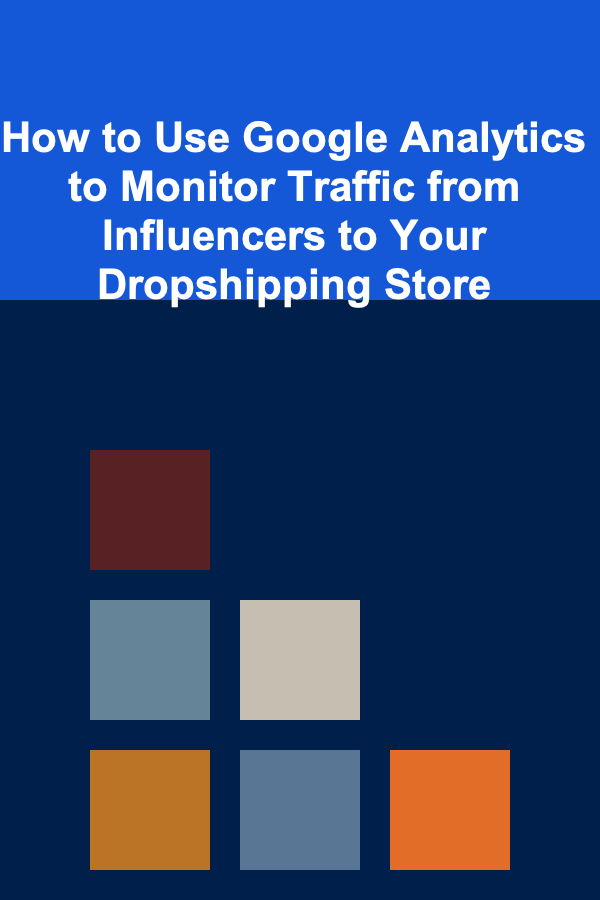
10 Effective Strategies for Cutting Down on Impulse Buying
ebook include PDF & Audio bundle (Micro Guide)
$12.99$5.99
Limited Time Offer! Order within the next:

Impulse buying is a common challenge for many consumers. It's the act of purchasing something without careful consideration, often triggered by emotions or external stimuli, like sales or advertisements. While occasional impulse purchases might seem harmless, they can quickly add up and derail your financial goals. Fortunately, with some awareness and planning, you can curb the habit and regain control of your spending.
In this guide, we will explore 10 practical and actionable strategies for reducing impulse buying, helping you make more thoughtful decisions when it comes to your finances.
Create a Detailed Budget and Stick to It
A budget is one of the most effective tools in combating impulse buying. By having a clear plan for your income and expenses, you can ensure that every dollar is assigned a specific purpose before you spend it.
How it helps:
- Prioritizes essential purchases: A budget ensures that you allocate money first to needs like housing, utilities, and groceries before considering discretionary spending.
- Limits discretionary spending: Setting limits for non-essential purchases, such as entertainment or dining out, can prevent overspending.
- Increases financial awareness: Tracking your expenses helps you become more conscious of your spending patterns and empowers you to make informed decisions.
Actionable tip:
Start by reviewing your current financial situation and create a simple budget that aligns with your goals. Use budgeting tools or apps to track your spending in real-time.
Implement the 24-Hour Rule
The 24-hour rule is a simple but powerful strategy for curbing impulse purchases. Before buying something that wasn't planned, wait 24 hours to reflect on whether you really need or want the item.
How it helps:
- Gives time to reflect: This waiting period allows you to detach emotionally from the desire to buy and evaluate the necessity of the item.
- Reduces emotional decisions: Impulse purchases are often driven by emotions such as boredom or stress. Taking a step back helps to reduce the urge.
Actionable tip:
Whenever you feel the impulse to buy something that isn't part of your budget, commit to waiting a full day. This often leads to realizing that the purchase wasn't as important as initially thought.
Avoid Shopping When Emotionally Charged
Shopping while feeling stressed, anxious, bored, or sad can lead to impulse purchases. Emotional states often drive us to seek comfort or instant gratification through buying.
How it helps:
- Prevents emotional spending: Recognizing when you are emotionally vulnerable can help you pause and reconsider before making a purchase.
- Improves decision-making: Emotional shopping can cloud judgment, leading to regrettable purchases. Shopping when calm allows for clearer decision-making.
Actionable tip:
If you find yourself in an emotionally charged state, try to address your feelings in a healthy way before heading to the store or browsing online. Take a walk, journal, meditate, or talk to someone before making any purchasing decisions.
Unsubscribe from Marketing Emails and Alerts
Constant exposure to sales, discounts, and promotions is one of the primary triggers for impulse buying. Email marketing, flash sales, and personalized ads often create a sense of urgency, making it difficult to resist purchasing.
How it helps:
- Reduces temptation: By cutting off marketing messages, you eliminate one of the most powerful sources of impulse-buying triggers.
- Prevents mindless browsing: Without the bombardment of deals, you're less likely to get caught up in the cycle of browsing and buying unnecessarily.
Actionable tip:
Unsubscribe from promotional emails and turn off push notifications for shopping apps. You can also use website blockers to limit access to e-commerce sites during certain times of the day.
Make a Shopping List and Stick to It
Whether you're shopping for groceries, clothing, or anything else, creating a list before you go and sticking to it can drastically reduce the likelihood of impulse buys.
How it helps:
- Focuses your attention: A shopping list helps you stay focused on what you actually need, reducing the temptation to stray.
- Prevents overbuying: When you have a clear plan, you're less likely to add unnecessary items to your cart, saving both money and time.
Actionable tip:
Before heading to the store or shopping online, make a list of exactly what you need and commit to buying only those items. Leave the credit card at home or log out of your online accounts to make it harder to make spontaneous purchases.
Use the Envelope System for Discretionary Spending
The envelope system is a cash-based budgeting method that helps you control discretionary spending by allocating a fixed amount of money to different categories of spending.
How it helps:
- Limits overspending: By using cash for certain expenses, you'll be more aware of how much you're spending and will avoid mindlessly swiping your card.
- Promotes mindful spending: Physically handling money makes you more conscious of your purchases and helps you evaluate whether you really need the item.
Actionable tip:
Set aside a specific amount of cash each month for things like entertainment, dining out, or shopping. Once the envelope is empty, no more spending is allowed in that category for the month.
Limit Credit Card Use
Credit cards make it easier to make impulse purchases since they offer instant access to funds. The psychological effect of not having to pay for an item immediately can encourage overspending.
How it helps:
- Increases awareness of spending: Using cash or debit cards forces you to think twice before making a purchase since it directly impacts your available balance.
- Reduces financial guilt: Avoiding the ease of credit card transactions can prevent the regret and stress that comes with a mounting credit card bill.
Actionable tip:
If you struggle with impulse buying, limit your credit card usage. Consider leaving your credit cards at home or setting a rule where you only use them for planned, budgeted purchases.
Create Spending Goals and Rewards
Setting specific spending goals can help you stay focused on long-term financial objectives, such as saving for a vacation, a car, or retirement. When you resist the urge to buy impulsively, reward yourself with something small.
How it helps:
- Encourages goal-oriented spending: Having clear financial goals keeps you motivated to prioritize saving over buying non-essential items.
- Creates a positive feedback loop: Rewarding yourself reinforces the good habit of saving and makes it easier to avoid impulse buys in the future.
Actionable tip:
Set short-term and long-term financial goals, such as saving a specific amount each month. When you achieve these goals, treat yourself with a modest reward that doesn't derail your progress.
Practice Mindful Spending
Mindful spending involves being intentional and thoughtful about every purchase, asking yourself whether it aligns with your values and financial goals.
How it helps:
- Helps differentiate wants from needs: Mindful spending encourages you to reflect on the true value of an item before making a purchase.
- Promotes satisfaction with less: By appreciating what you already have, you reduce the desire for unnecessary purchases and develop a greater sense of financial contentment.
Actionable tip:
Before buying something, pause and ask yourself if this purchase aligns with your priorities. Think about whether it adds real value to your life or whether it's just a fleeting desire.
Evaluate Purchases Based on Long-Term Value
One of the best ways to avoid impulse buying is by shifting your focus to the long-term value of purchases rather than the short-term gratification they provide.
How it helps:
- Encourages thoughtful decision-making: By focusing on how a purchase fits into your long-term plans, you're more likely to consider its lasting benefits instead of being swayed by temporary emotions.
- Reduces buyer's remorse: When you consider how an item will serve you in the future, you're less likely to experience regret after a purchase.
Actionable tip:
Before making a purchase, ask yourself if this item will still provide value to you a year or two from now. If it's unlikely to enhance your life in the long run, reconsider your decision.
Conclusion
Impulse buying can be a difficult habit to break, but with the right strategies, you can take control of your spending and make more intentional financial decisions. Whether through budgeting, setting goals, or practicing mindfulness, each of these 10 strategies can help you reduce impulsive purchases and stay on track with your long-term financial goals. Start small and be consistent, and over time, you'll see a significant improvement in your ability to manage spending.

How to Monetize Your Craft Hobbies on Etsy and Beyond
Read More
How to Organize Your Home Library for Easy Access to Books
Read More
How to Plan a Birthday Party at Home That Feels Extra Special
Read More
How to Use Google Analytics to Monitor Traffic from Influencers to Your Dropshipping Store
Read More
Marketing Tips for Selling Digital Cookbooks
Read More
The Product Designer's Toolkit: Proven Methods for Designing Impactful and Usable Products
Read MoreOther Products

How to Monetize Your Craft Hobbies on Etsy and Beyond
Read More
How to Organize Your Home Library for Easy Access to Books
Read More
How to Plan a Birthday Party at Home That Feels Extra Special
Read More
How to Use Google Analytics to Monitor Traffic from Influencers to Your Dropshipping Store
Read More
Marketing Tips for Selling Digital Cookbooks
Read More